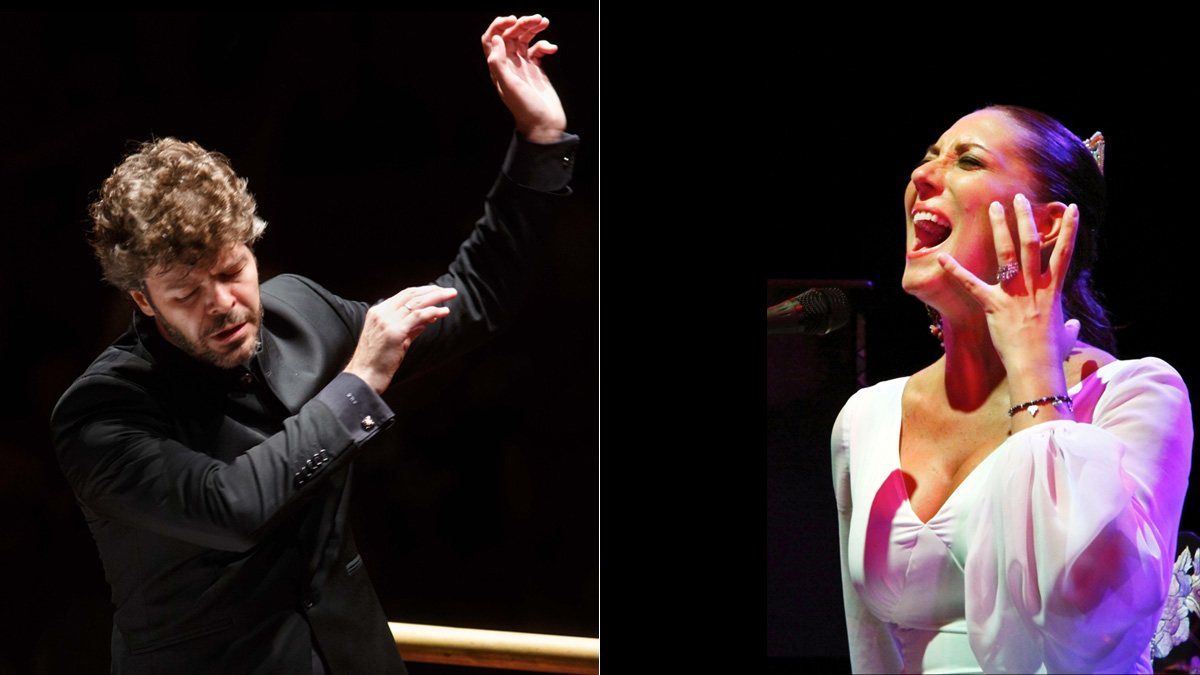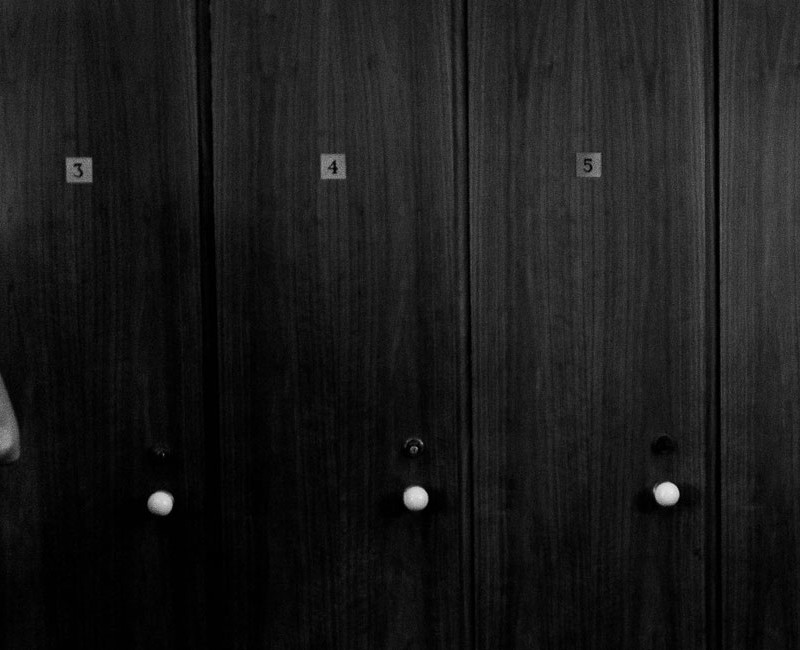
Pablo Heras-Casado Presents His First All-Spanish Program in the U.S. with Orchestra of St. Luke’s at Carnegie Hall, March 10
Jan 24, 2016
Concert to Feature:
Manuel de Falla’s El amor brujo, Performed, as Originally Intended, with a Flamenco Singer, the Acclaimed Marina Heredia in her Carnegie Hall Debut
Falla’s Noches en los Jardines de España with the Carnegie Hall Debut of Celebrated Pianist Javier Perianes
Carnegie Hall Premieres of Eduard Toldrá’s Vistas al mar and
Joaquín Turina’s La oración del torero
New York, NY – On Thursday, March 10 at 8:00 PM, Orchestra of St. Luke’s Principal Conductor Pablo Heras-Casado will conduct his first program of all-Spanish music in the United States as part of OSL’s 2015/2016 Carnegie Hall Orchestra Series. The concert will feature Manuel de Falla’s El amor brujo, performed, as Falla originally intended, with a flamenco singer, the internationally celebrated Granada-based artist Marina Heredia, whose presence Heras-Casado intends to illuminate this well-known work; and Falla’s Noches en los Jardines de España, for which Heras-Casado has invited the lauded pianist Javier Perianes. Heredia and Perianes both make their Carnegie Hall debuts on this rich program, which is rounded out with the Carnegie Hall premieres of two string orchestra works from the early 20th century—Eduard Toldrá’s Vistas al mar and Joaquín Turina’s La oración del torero.
“It is time, here in New York, for me to present a program that celebrates the best Spanish music, with some of the best Spanish artists,” says Heras-Casado, who has served as OSL’s principal conductor since the 2012/2013 season. “I made my Carnegie Hall debut with Orchestra of St. Luke’s in 2013 and it is fitting to mark another career milestone—and one that is so close to my heart—with the same incredible orchestra, my musical family.”
“For more than 20 years, OSL and Carnegie Hall have collaborated on creative programming, offering musical experiences that concertgoers can’t find anywhere else,” says OSL President & Executive Director James Roe. “Pablo’s personal connection to this music will create a palpable energy in Carnegie Hall.”
The Spanish-born Manuel de Falla composed the ballet El amor brujo (Bewitched Love) at the request of the great Andalusian gypsy dancer Pastora Imperio, who, with her family, premiered the work in Madrid in 1915. Upon receiving the commission, Falla immersed himself in gypsy music and wrote original melodies that echoed traditional folk songs. Both the 1915 chamber version and the 1925 orchestral score that OSL will perform include a flamenco vocal line, but the work is commonly presented with a mezzo-soprano soloist instead. The text, written by poet and choreographer Gregorio Martinez Sierra and based on a Gitano tale that Imperio’s mother, “la Mejorana,” told him, is about a woman haunted by the ghost of her unfaithful husband. With passionate and poignant orchestral writing, El amor brujo offers a vivid depiction of the cruelty and deceptions of love.
Heredia’s appearance makes this a rare opportunity for New York audiences to hear El amor brujo with the style and passion of traditional flamenco singing, of which Heredia is one of Spain’s renowned exponents. Heredia learned her craft singing in the tablaos (Flamenco clubs) of Granada while still a child, and has since performed in prestigious venues and festivals across Spain and around the world. She received the Andalusian Youth of the Arts Award in 2004 for her contributions to the genre, and the Flamenco National Review awarded her recent album Marina (2010) the prize for Best Album of the Cante Flamenco in 2011. She has performed El amor brujo to acclaim worldwide.
Heras-Casado, who is from the Andalusian city of Granada, always performs El amor brujo with a flamenco singer and is thrilled for New York audiences experience the expressive power Heredia brings to Falla’s passionate music.
Painting musical impressions of three gardens in Andalusia, Falla’s Noches en los Jardines de España (Nights in the Gardens of Spain) immediately conjures visions of home for Heras-Casado. “The Generalife [the first of the three gardens] are the gardens of the Alhambra and I can see them from my front window in my home in Granada,” he explains. “That color and atmosphere is part of my culture.” Written for orchestra and solo piano, Falla’s flamenco influence is also apparent here, with passages that seem to suggest improvisatory flamenco vocals.
Heras-Casado has invited Javier Perianes, a beloved young Spanish pianist with a growing international reputation, to make his Carnegie Hall debut as soloist in the piece. Described as “a pianist of impeccable and refined tastes, blessed with a warmth of touch” (The Guardian), Perianes performs this concert amidst a banner season, following his Boston Symphony Orchestra debut (March 3-5) and just before his debuts with the Atlanta Symphony Orchestra (May 5 & 7) and the Chicago Symphony Orchestra (May 12-15). He makes his Vienna Philharmonic debut June 26 at Madrid’s Auditorio Nacional De Música. Perianes is an ideal match for de Falla’s symphonic impressions, in which the piano engages in intimate dialogue with the orchestra.
Each half of the program opens with short works by lesser-known Spanish composers, Joaquín Turina and Eduard Toldrá. “The key to this program is to combine the familiar masterworks by de Falla with two others that are absolutely unfamiliar,” says Heras-Casado. Both works receive their Carnegie Hall premieres in this performance.
A close friend of Falla, Turina was heavily inspired by traditional Andalusian music. La oración del torero (The Bullfighter’s Prayer) is his reflection on the contrast between the festive scene in a bullfighting arena and the quiet contemplation of a bullfighter just moments before he faces possible death. Turina first composed the piece for lute quartet, and later revised it for string quartet and finally for string orchestra. “We’ll bring the intimacy of a quartet, but the fuller sound will make it exciting,” predicts OSL violinist Eriko Sato, who has played the string quartet version.
Vistas al Mar (Views of the Sea) by Toldrá was inspired by verses in La Ginesta by Spanish poet Joan Maragall. His brilliant string writing creates a wide range of moods, from calm and nocturne-like to bustling and joyful.
“With Orchestra of St. Luke’s I’m always very proud to combine well-known repertoire with pieces that are not often presented—or have never been presented—in New York,” says Heras-Casado. “And in this program I feel especially proud to introduce extraordinary Spanish artists and share the spirit and the music of our culture.”
The concert, Colors of Spain, is included as part of the 2016 Flamenco Festival in New York City.

